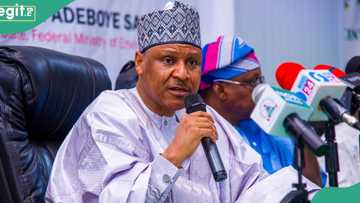History of broadcasting in Nigeria: how it all started and its state as of 2024
Broadcasting involves communicating and transmitting information to the public. Today, there are multiple audio-visual and electronic or electro-magnetic ways of reaching the masses. This was not always the case. Broadcasting has evolved and changed over the years. Here is a look at the history of broadcasting in Nigeria.
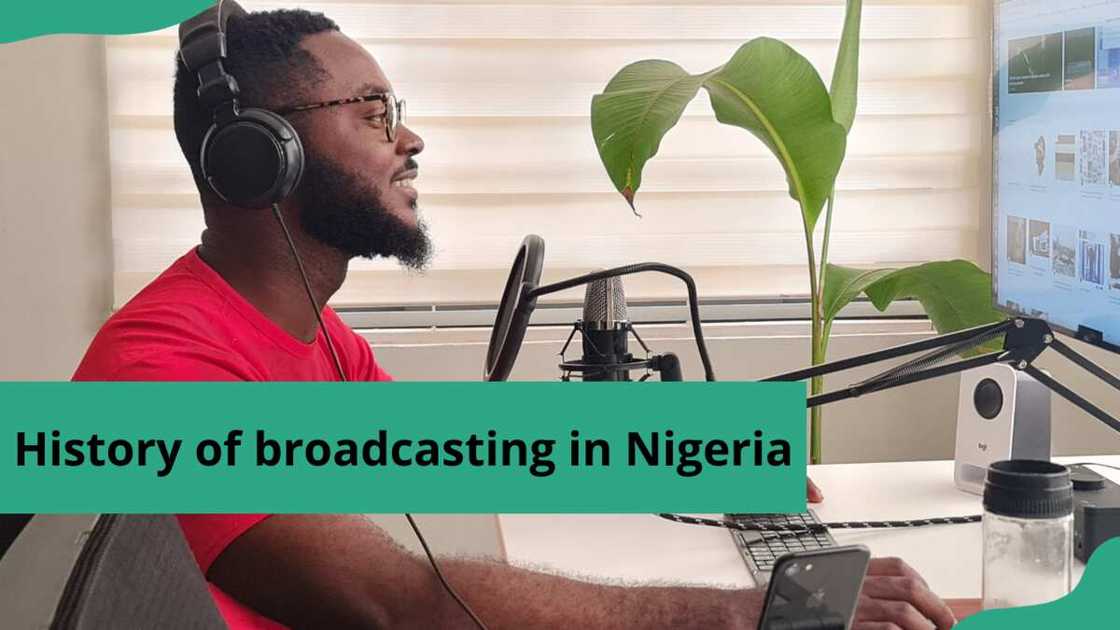
Source: UGC
Television, radio, internet, audio podcasts, and video content are examples of broadcast media. These channels of communicating with the masses have evolved over many decades. The history of broadcasting in Nigeria tells the changes that have taken place over the years.
History of broadcasting in Nigeria
The evolution of broadcasting in Nigeria changed how people live and function. Today, broadcast media lets the masses know about everything that happens around the world. It is also used to entertain people and for marketing purposes.
How did television broadcasting start in Nigeria?
The history of broadcasting in Nigeria can be traced back to the colonial period. The British colonised the country.
Upon their arrival, they established the Nigerian Broadcasting Corporation (NBC) in 1933. NBC was controlled by the government and it only aired educational shows and some propaganda.
The Federal government of Nigeria took over the control of NBC after the country gained independence. Interestingly, it remained the only broadcaster until the late 1970s.
The media industry in the country has grown tremendously since then. Below is a look at all the milestones the industry has made over the years.
Origin
Colonial Nigeria was ruled by the British Empire from the mid-nineteenth century until 1960, when Nigeria achieved independence. The British established and controlled NBC in 1933.
Television broadcasting in the country started in the 1950s when the British established the Nigerian Broadcasting Service (NBS).
On 31st October 1959, NBS was launched. It became the first TV station in Nigeria and Africa. Back then, it was called the Western Nigerian Television (WNTV). The television station was based in Ibadan.
Journey towards national coverage
The success of WNTV paved the way for the opening of other television stations in the country. 1962 was a monumental year because the second TV station in the country, Eastern Nigerian Television (ENTV), was established.

Read also
Telecom tariff hike: Subscribers to negotiate with NCC today as NLC, NANS threaten to protest
The following year, the Nigerian Television Service (NTS) was launched in Lagos. WNTV, ENTV, and NTS expanded television coverage across the country.
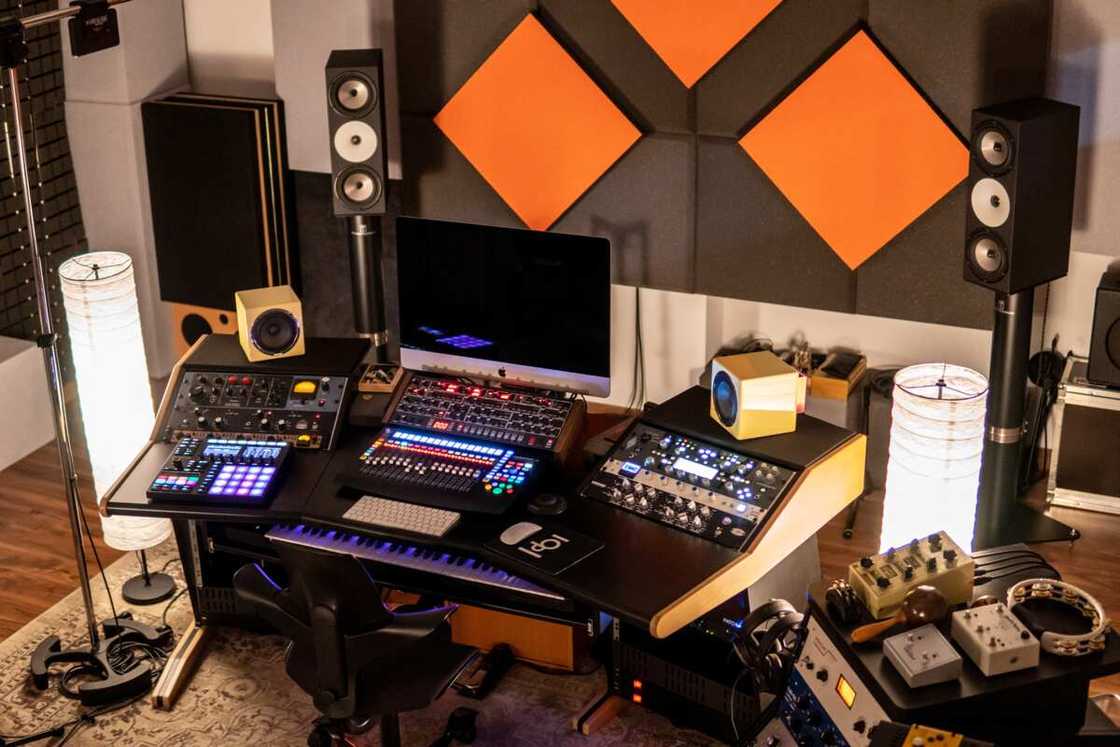
Source: UGC
Regulation by the Nigerian Television Authority (NTA)
In 1977, the NTA was established due to the Nigerian Broadcasting Corporation Decree. It was mandated to coordinate and regulate television broadcasting activities in the country.
As a result, NTA became the only television broadcaster in Nigeria. It provided nationwide coverage and played a crucial role in shaping public opinion.
Advancement in tech
Satellite technology was welcomed in the country in the 1990s. This technology revolutionised television broadcasting in the country.
The NTA liaised with satellite providers to facilitate expanded coverage and improved transmission quality. This technology laid the foundations for the establishment of private television stations.
Privatisation
The Nigerian government started privatising broadcast media in the early 1990s. As a result, private television stations popped up.
Some of the first private TV stations in the country were Galaxy Television, Channels Television, Africa Independent Television (AIT), and Silverbird Television.
The establishment of private stations led to increased competition. Consequently, there was improved quality of content and innovative programming. Citizens and residents also have a wider array of channels to view.
Digitisation
In 2008, Nigeria started its digital switchover process to keep up with the rest of the world. The NBC spearheaded the Digital Switch Over (DSO) project.
The project was aimed at improving picture quality, optimising spectrum usage, and increasing channel capacity. It allowed the provision of high-definition (HD) and interactive services.
Current situation
The contemporary media landscape is quite dynamic and is constantly evolving. There are multiple private broadcasters, and popular international brands have set foot in the country.
The media stations have digitised their content. Even so, a few people still prefer traditional sources of information, e.g., print media, so such options are still available.
A significant percentage of people in the country use TV and radio as their primary source of information. However, most people in the country prefer online sources, especially social media.
WhatsApp, Facebook, Instagram, X, TikTok, and YouTube are most widely used for news. Some international media platforms offer premium subscription services for news. It is not clear how many citizens and residents have embraced subscriber-only content.
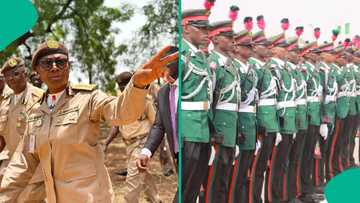
Read also
FG raises alarm over emergence of a new sect separating children, sends message to Nigerians

Source: UGC
Press freedom in present-day Nigeria
Press freedom is enshrined in the constitution of the Federal Republic of Nigeria. In reality, press freedom is still imperilled in the country.
The country is struggling with credible journalism because of the rise in the dissemination of fake content. On the other hand, the relevant authorities often cite the spread of misinformation and disinformation as the reason for media crackdowns.
What is the history and origin of broadcasting in Nigeria?
The history and origin of broadcasting in the country can be traced to the colonial period when the Nigerian Broadcasting Corporation was established. Read more about the history above.
Who established the first broadcasting service in Nigeria and when?
The Nigerian Broadcasting Service (NBS) was the first TV station in Nigeria. It was established by the British colonisers.
What is the state of the Nigerian broadcasting industry in 2024?
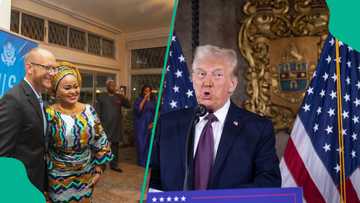
Read also
US embassy in Nigeria announces temporary closure of office, gives date, sends message to Nigerians
The Nigerian broadcasting industry has gone digital as of 2024. The presence of multiple stations has increased competition, resulting in improved quality. However, press freedom is not guaranteed.
The history of broadcasting in Nigeria can be traced to the era of British colonialists. The industry has evolved over the years and the country's residents now have a myriad of platforms to choose from.
Legit.ng recently published the types of thermometers and their uses, pictures, advantages, and disadvantages. Thermometers are instruments used to measure and indicate temperature.
There are multiple types of thermometers in the contemporary market. Different types are used for different reasons, for example, research, cooking, and monitoring patients' body temperature.
Source: Legit.ng

Cyprine Apindi (Lifestyle writer) Cyprine Apindi is a content creator and educator with over six years of experience. She holds a Diploma in Mass Communication and a Bachelor’s degree in Nutrition and Dietetics from Kenyatta University. Cyprine joined Briefly.co.za in mid-2021, covering multiple topics, including finance, entertainment, sports, and lifestyle. In 2023, she finished the AFP course on Digital Investigation Techniques. She received the 2023 Writer of the Year Award. In 2024, she completed the Google News Initiative course. Email: cyprineapindi@gmail.com

Adrianna Simwa (Lifestyle writer) Adrianna Simwa is a content writer at Legit.ng where she has worked since mid-2022. She has written for many periodicals on a variety of subjects, including news, celebrities, and lifestyle, for more than three years. She has worked for The Hoth, The Standard Group and Triple P Media. Adrianna graduated from Nairobi University with a Bachelor of Fine Arts (BFA) in 2020. In 2023, Simwa finished the AFP course on Digital Investigation Techniques. You can reach her through her email: adriannasimwa@gmail.com


